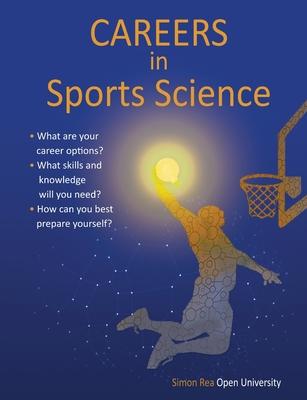This book is aimed at students who are currently studying sports science at undergraduate level or studying BTECs in sport or sport and exercise science. The purpose of the book is to answer the big question:
What do you do with a sports science degree?
It is common that students know that they want to work in sport and work with people but are not sure exactly what they can do. This can affect their motivation while they study as they have no clear goal to work towards.
Based on interviews with 20 people who work in sports related occupations this is designed to provide direction and guidance to enable students to make informed decisions about what they could do with their qualification. The case studies include people who work to support performance athletes, such as a sports nutritionist, sport psychologist, sports analyst, exercise physiologist and a strength and conditioning coach. Also included are cases studies of sports coaches, personal trainers and teachers as well as broader career options such as sports massage therapy, sports development and sports journalism and broadcasting. Many of the people chosen as case studies work with Olympic or professional athletes.
As part of the case studies the importance of developing personal skills needed to work with athletes and other people are discussed. These discussions form the basis of a key chapter about the personal skills needed to work in sporting environments that are often unpredictable, complex and challenging. There is also important advice on how personal skills can be developed whilst studying and what else you should do during your studies to make yourself more employable.
There is an introductory chapter on the options for students who want to study sports science, or similar courses, at degree level with a focus on whether A-level or BTEC qualifications will be more beneficial to them. This chapter also assesses the value of degree level study to an individual's career. There is a concluding chapter that examines how to apply for jobs and prepare for interviews once you have gained your qualification.
The author, Simon Rea, has worked as a performance coach and personal trainer as well as teaching in both higher and further education for over 25 years. He is a senior fellow of the Higher Education Academy and has written or contributed significantly to 14 books related to sports science.
